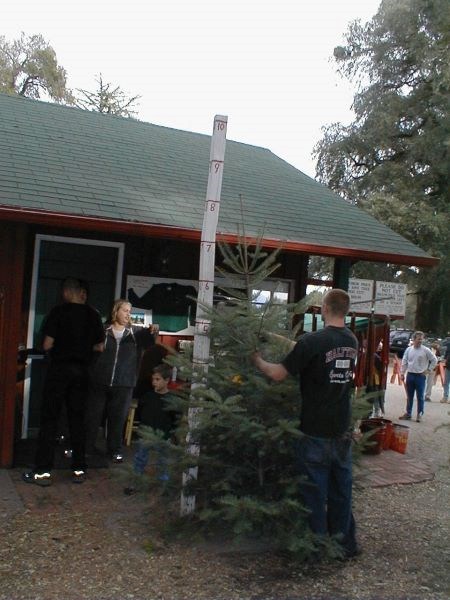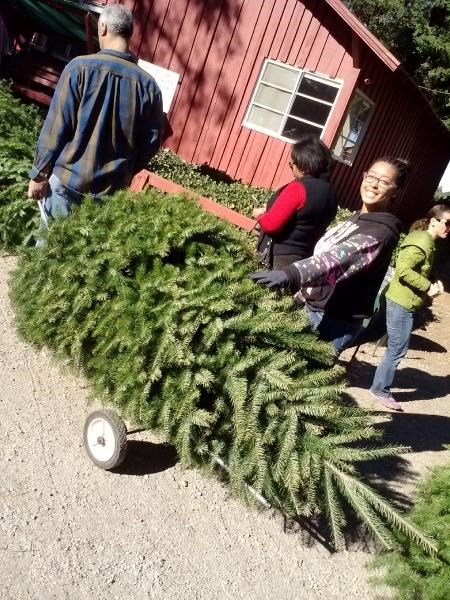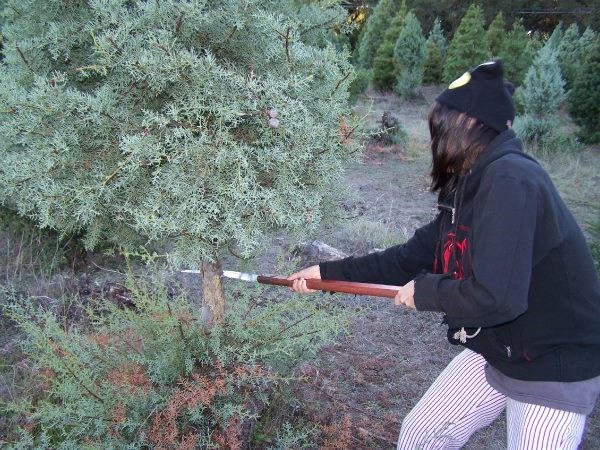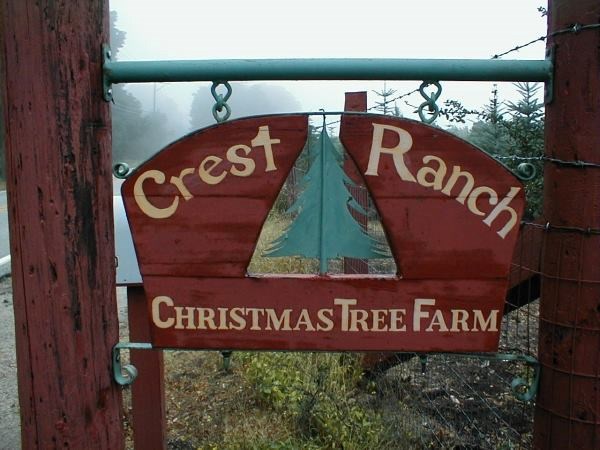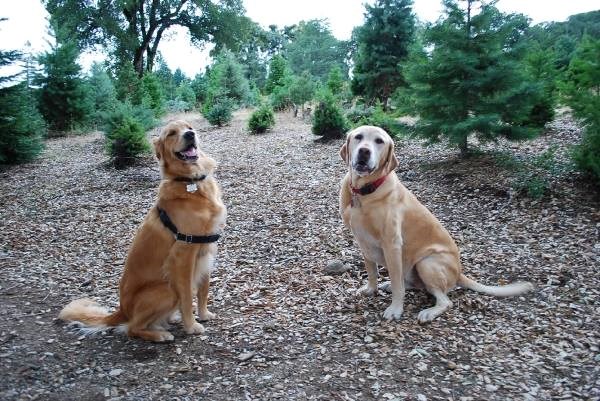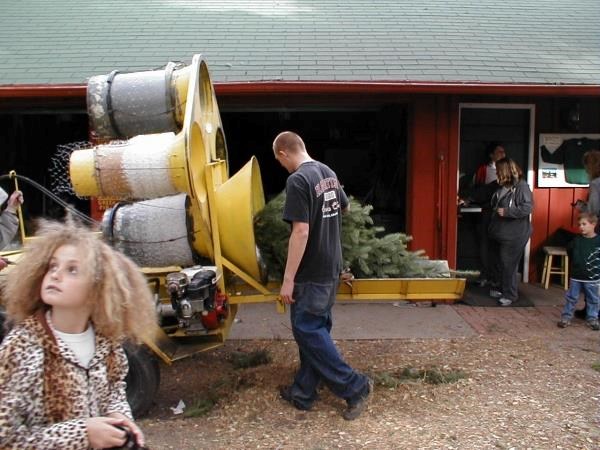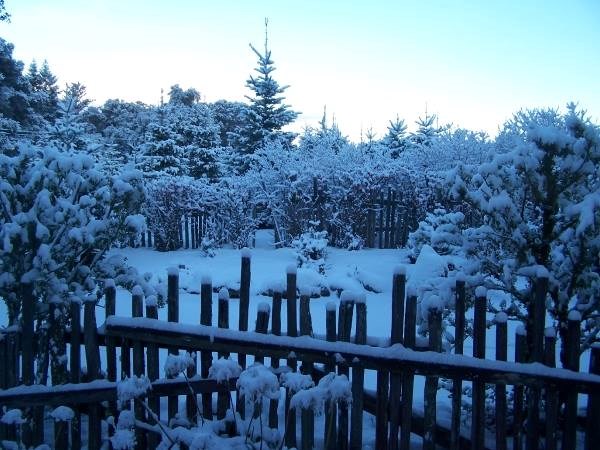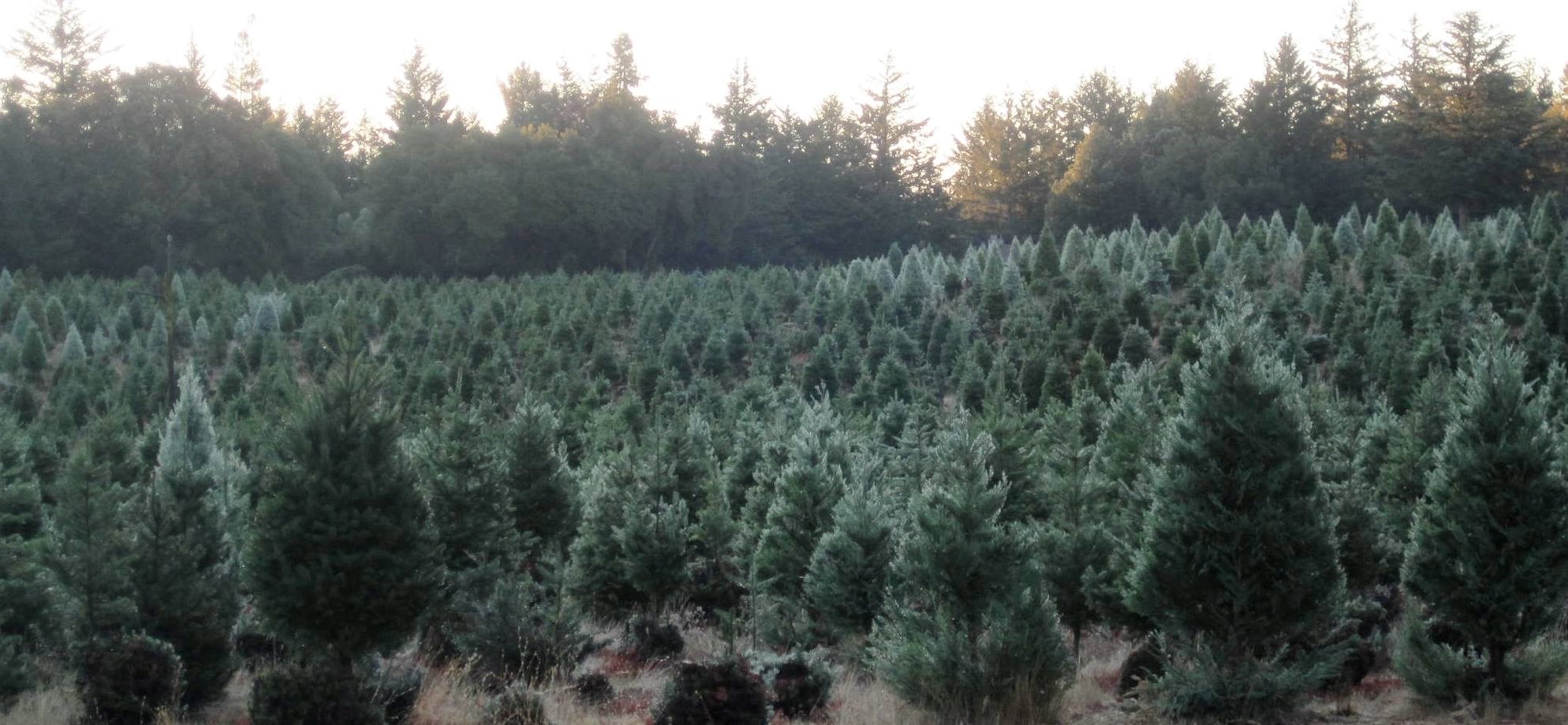Crest Ranch
| 12200 Empire Grade, Santa Cruz, CA, 95060 | |
| (831) 423-8733 | |
| Louise Jensen-Moran | |
| http://www.crestranch.com/ | |
| Crest-Ranch-Christmas-Tree-Farm-17812... |
| Open Daily | 8 am - 5 pm |
Christmas tree types at Crest Ranch:
The Arizona cypress, of the species Cupressus arizonica, has a pale-green to grey-green color and a wonderful fragrance that will fill your home. It does not have needles as do the pines and firs. The bark is thin and delicate with a reddish brown color.
The Atlantic Cedar (Cedrus atlantica ) bears needles in tufted clusters. Needles are less than 1 inch long, stiff and joined in very tight little tufts. It is an evergreen tree with gray bark, ridged into irregular plates.
The Austrian pine, of the species Pinus nigra, makes a great Christmas Tree, and is also commonly used in landscaping because of its hearty, resilient nature. Its long needles are usually tufted on the ends of the branches. It is slow to get started, but grows quickly once established. This tree has excellent needle retention.
The Douglas Fir, of the Pseudotsuga species, is one of our most popular trees. It has a beautiful appearance, with soft 1" needles radiating in all directions from the branch, as well as a lovely fragrance.
The name Leyland cypress is used to describe a group of trees where all the members are sterile hybrids. There are no naturally occurring Leyland cypress. They must be propagated by rooted cuttings.This tree is a hybrid of Monterey cypress (Cupressus macrocarpa) and Alaskan cedar (Chamaecyparis nootkatensis). In 1888, six seedlings were discovered by C.J. Leyland at Leighton Hall in the South of Wales. The two parent trees were growing on the Estate and cross bred purely by accident. Intergeneric crossbreeding is a rare occurrence in plants and particularly in conifers.The foliage of the Leyland cypress varies somewhat from one cultivar to the next. But in general it tends to be arranged in irregularly flat planes with a dark green to gray color. The shoots branch repeatedly and have a contrasting mahogany color except at the tips. The trees have little aroma. The bark of the Leyland cypress is has a skin-like texture and is quite delicate.
One of the most popular Christmas Trees in the US is the Scotch Pine. It is has a dark green color, and its stiff branches are well suited for decorating with both light and heavy ornaments. This tree has excellent needle retention characteristics.
The Sierra Redwood (Sequoiadendron giganteum) is also called bigtree or giant sequoia. It grows in the mountains of California, being common in Yosemite. A billowing mass of blue-green foliage soars to a neat, spired top.
The Sugar Pine (or Pinus Lambertiana) has been long appreciated for its beauty and is widely regarded as the 'king of pines.' The Sugar Pine is native to the Sierra Nevada mountain range of the Pacific Coast. In nature this tree reaches heights of 160'.The Sugar Pine has medium to long forest-green Pine Needles which are gathered into tufts. Its "tufted" branches allow some spaces between the foliage which together with its strong, flexible branches make the the Sugar Pine perfect for hanging ornaments. Its woodsy charm and forest-green foliage is especially well suited for country styled decorations or traditional red, white, and green ornaments.
The White fir, of the species Abies concolor, is a beautiful tree and very popular with our customers. It varies from a bluish to a greenish shade. Its layered branches are nicely spaced, giving plenty of room for easy decorating. White Firs are a slower growing species, but well worth the wait. Be sure to put your White Fir in water as soon as possible after cutting for maximum needle retention.

